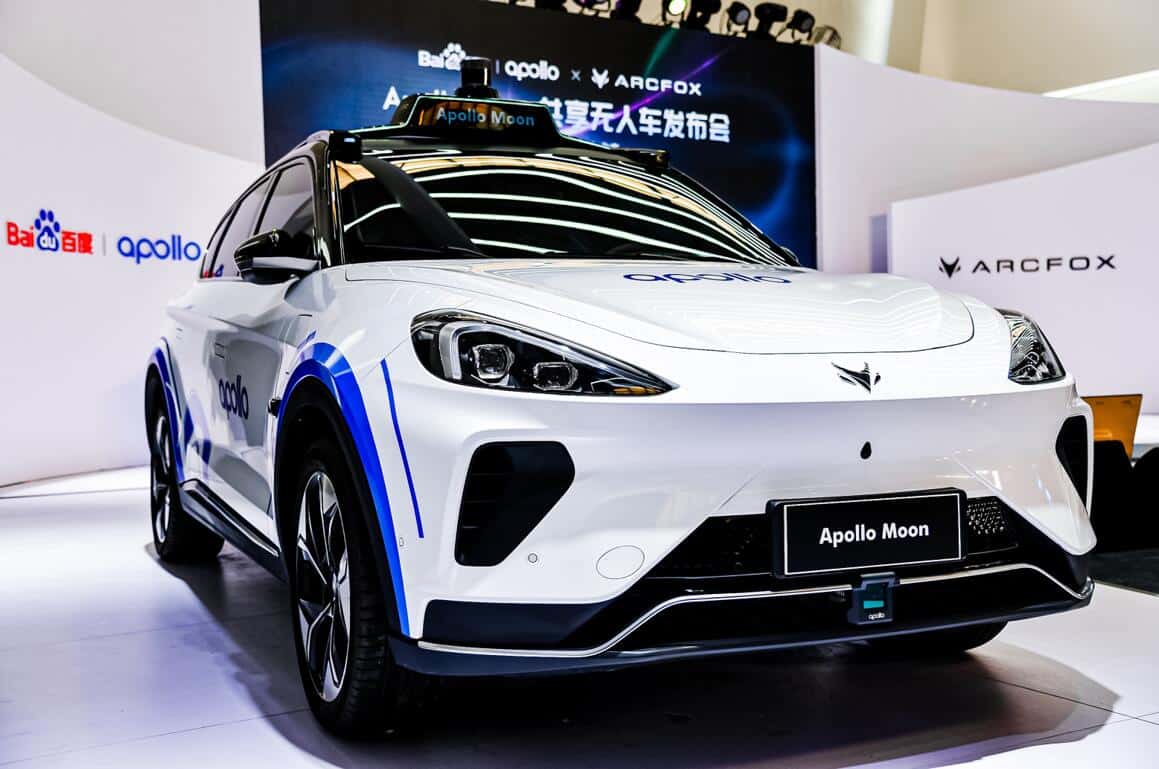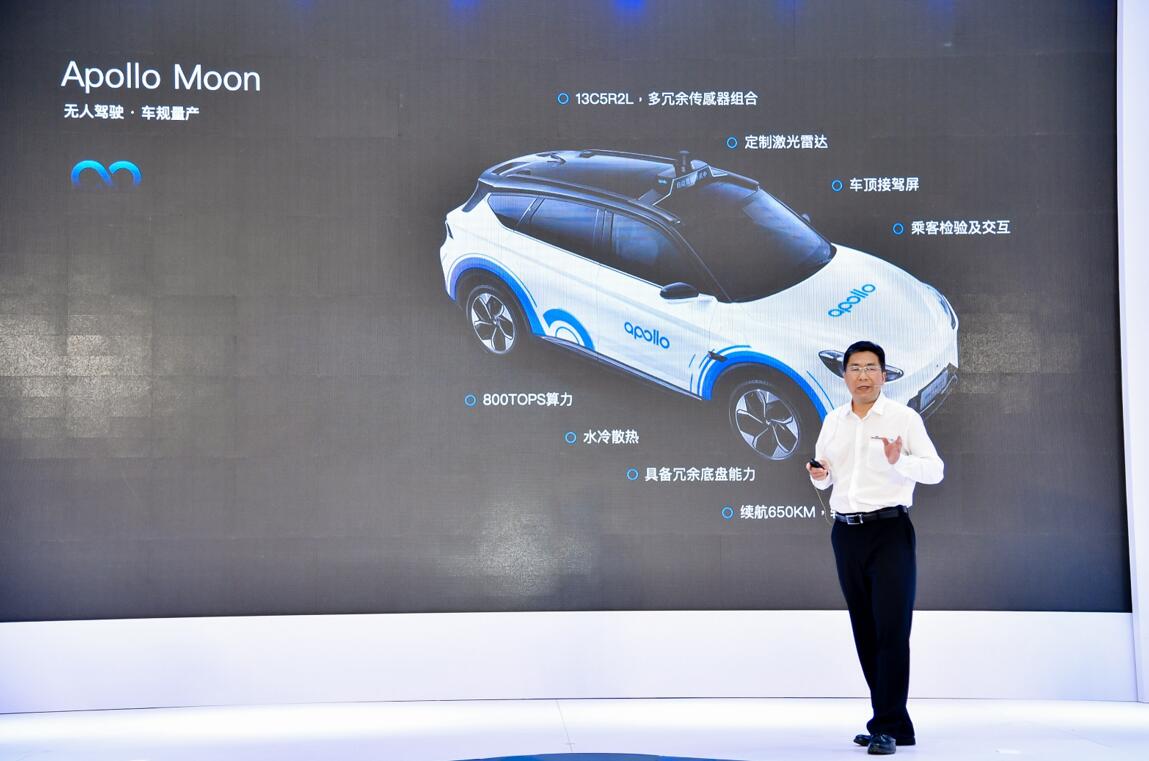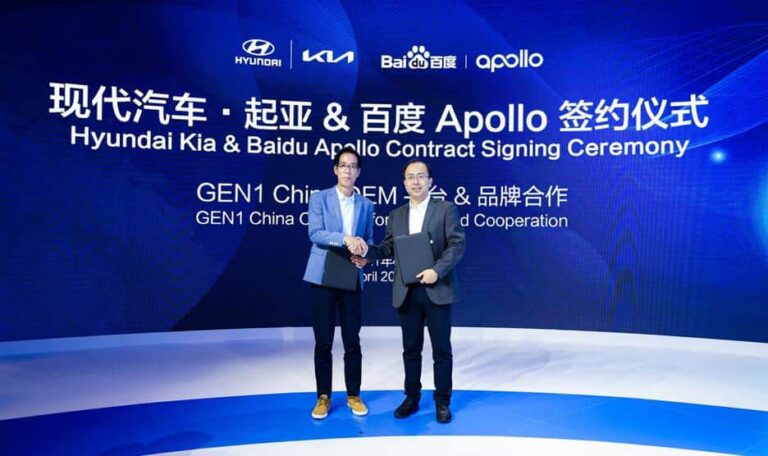(Source: Baidu)
Apollo, the self-driving arm of Chinese tech giant Baidu, has unveiled its latest Robotaxi, setting the stage for large-scale commercialization of the business at relatively low costs.
Apollo and BAIC's electric car brand Arcfox jointly unveiled the ride-hailing self-driving car, called Apollo Moon, on Thursday, the fifth generation of such products from Apollo.
Baidu said the Apollo Moon, including the vehicle and driverless kit, costs only 480,000 yuan ($75,000), a third of the average cost of an L4 self-driving car.
Apollo Moon uses the "ANP-Robotaxi" architecture, which not only makes the vehicle kit lightweight but also allows it to share data with smart cars.
ANP stands for Apollo Navigation Pilot, a NOP-like feature powered by Apollo's L4 autonomous driving technology.
Baidu said that on top of ANP, Apollo Moon adds 1 custom LiDAR and corresponding driverless redundancy settings, resulting in a fully driverless capability.
(Source: Baidu)
Apollo Moon is 10 times more capable compared to its predecessor, with a 99.99 percent success rate in delivering passengers on complex urban roads, Baidu said, adding that even if one system fails, it ensures that the entire vehicle still executes driving commands and delivers passengers to a safe location.
Apollo Moon vehicles can achieve five years of continuous reliable operations and are able to provide long-term stable self-driving travel services, according to Baidu.
Li Zhenyu, senior vice president of Baidu and general manager of the intelligent driving business group, said that in 2017, Baidu and BAIC reached a strategic cooperation, and the release of Apollo Moon marks a milestone moment in the global self-driving mobility sector.
Baidu and Arcfox also signed a new strategic cooperation agreement today, in which both parties expect to launch 1,000 shared unmanned vehicles in the next three years. "This will help Baidu's Apollo Robotaxi mobility service cover more urban areas within three years and achieve sustainable commercialization goals," Baidu said.
The move comes at a time when Apollo is accelerating its commercialization.
On April 19, Apollo announced during the Shanghai Auto Show that a new vehicle with its autonomous driving will be available every month for the second half of the year.
On May 10 Apollo announced that Wei Dong, former CEO of Shouqi Limousine & Chauffeur, joined Baidu as vice president of the Intelligent Driving Business Group and chief safety operations officer of Baidu's Intelligent Driving Business Group. Wei will lead the commercial operations of Baidu's Apollo shared unmanned vehicles, the company said.
As an industry veteran with years of commercialization experience in shared mobility, Wei will substantially drive the acceleration of Apollo shared unmanned vehicle deployment and commercial operations in China, Baidu said.
Baidu began its involvement in autonomous driving technology eight years ago and was one of the first companies to enter the field in China.
Currently, Baidu's Apollo test fleet has reached 500 vehicles and 2,900 smart driving patents. 221 test licenses have been granted to Apollo, including 179 manned test licenses.
As of April 2021, Apollo L4 level autonomous driving road test mileage has exceeded 10 million kilometers, making it the first Chinese company to reach this threshold.


